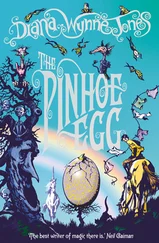
Donna Leon
The Golden Egg

Atlantic Monthly Press
New York
For Frances Fyfield
lasciate,
che al mio core, al mio bene
io porga almen gil ultimi baci. Ahi, pene !
leave me,
to give my beloved, my son,
one last kiss. Ah, what suffering!
Giulio Cesare
Handel
1
It was a peaceful night at the Brunetti home, and dinner progressed in harmony. Brunetti sat at his usual place, his son Raffi beside him; opposite Brunetti sat his wife, Paola, and beside her their daughter, Chiara. A plate of fritto misto to which vegetables, particularly Chiara’s current favourite, carrots, had been added with a liberal hand had initiated the peaceful mood; the conversation had maintained it. School, work, a neighbour’s new puppy, the first Labradoodle to be seen in Venice: the topics flowed into and from one another, and then on to yet others, all of them tied in some way to the city in which they lived.
Though they were Venetian, the conversation took place in Italian rather than in Veneziano, Brunetti and Paola having decided that the children would learn the dialect anyway from their friends and on the street. This had indeed happened, and so the children spoke Veneziano as easily as did their father, who had been raised speaking it. Paola had picked it up – and it was perhaps to her credit that it embarrassed her to confess this – from the servants who had filled her family’s palazzo when she was growing up, rather than from her parents, and so she spoke it less fluently than the others. She felt no embarrassment – quite the contrary – in having achieved almost native fluency in English from her childhood nanny and was pleased that she had managed to pass the language on to both her children, though the transmission had been aided by classes with a private tutor and summer study in England.
Families, much in the manner of churches, have rituals and rules which puzzle non-members. They also place high value on things which members of other groups do not prize to the same degree. If the Brunettis had a religion, aside from a formal adherence to some of the outward, decorative manifestations of Christianity, it was language. Puns and jokes, crossword puzzles and teasers were to them what communion and confirmation were to Catholics. Bad grammar was a venial sin; deliberate corruption of meaning was mortal. The children had taken pride in reaching the stages of awareness where they, too, could partake in the progressively more serious sacraments; raised in this faith, they did not think to question its values.
Later, when the plates from which they had eaten the baked finocchio with rosemary were removed from the table, Chiara set her water glass down with a thump and said, ‘They all lived happily ever after.’
‘Clorinda’s eyes met Giuseppe’s, and together they gazed happily down at the baby,’ Paola said immediately in a voice she pumped full of emotion.
Raffi looked across at his sister and mother, tilted his chin and studied a painting on the other side of the room, and then said, ‘And so it was: the radical procedure left even the doctors who performed it astonished: indeed, for the first time in history, a baby had successfully been delivered from a man’s body.’
It took Brunetti but a moment to say, ‘As he was wheeled into the delivery room, Giuseppe had time to say, “She is nothing to me, my love. You are the only mother of my child.”’
Chiara, who had listened to the contributions of the others with growing interest, added, ‘Only the strongest of marriages could survive such an event, but Clorinda and Giuseppe knew a love that passed all understanding and leaped over every obstacle. Yet for a moment, Clorinda wavered. ‘“But with Kimberly? The friend of my heart?”’
Back to Paola, who said in the cool voice of the narrator, ‘In order to preserve the rock of honesty upon which their marriage was founded, it was necessary for Giuseppe to confess the lengths to which his desire for a child had driven him. “It was meaningless, my love. I did it for us.”’
‘“You brute,” Clorinda sobbed, “you betray me like this. What of my love? What of my honour?”’ This was Raffi’s second contribution, to which he added, ‘“And with my best friend.”’
Leaping at the opening this created, Chiara broke in out of turn and said, ‘He lowered his head in shame and said, “Alas, it is Kimberly’s child.”’
Paola banged her hand on the table to get their attention and demanded, ‘“But that’s impossible. The doctors told us we would never have children.”’
Incensed at having had his turn stolen – and by his wife – Brunetti broke in to say, doing his best to sound like a pregnant man, ‘“I am with child, Clorinda.”’
For a moment, no one spoke as they all ran their way backwards through the dialogue and accompanying narrative to see if they fulfilled the family requirement for a story filled with cheap melodrama, cliché and outrageous characterization. When it was clear that no one had anything to add to the beginning of the story, Paola got to her feet, saying, ‘There’s ricotta-lemon cake for dessert.’
Later, as they sat in the living room, having coffee, Paola asked Brunetti, ‘Do you remember the first time Raffi brought Sara here, and she thought we were all mad?’
‘Clever girl,’ Brunetti said. ‘Good judge of people.’
‘Oh, come on, Guido; you know she was shocked.’
‘She’s had years to get used to us,’ Brunetti said.
‘Yes, she has,’ Paola said, leaning back in the sofa.
Brunetti took her empty cup and set it on the table in front of them. ‘Is this grandmotherhood calling?’ he inquired.
Without thinking, she reached aside and poked him in the arm. ‘Don’t even joke about it.’
‘You don’t want to be a grandmother?’ he asked with feigned innocence.
‘I want to be the grandmother of a baby whose parents have university degrees and jobs,’ she answered, suddenly serious.
‘Are those so important?’ he asked, just as serious
as she.
‘We both have them, don’t we?’ she asked by way of answer.
‘It is the usual custom to answer questions with answers, not with more questions,’ he observed, then got up and went into the kitchen, remembering to take the two cups with him.
He came back a few minutes later, carrying two glasses and a bottle of Calvados. He sat beside her, and poured them each a glass. He handed her one and took a sip of his own.
‘If they have degrees and jobs, it means they’ll be older when they have children. Perhaps wiser,’ Paola said.
‘Were we?’ Brunetti asked.
Ignoring his question, she went on. ‘And, if they get a decent education, they’ll know more, and that might help.’
‘And the jobs?’
‘They’re not so important, I think. Raffi’s bright, so he shouldn’t have trouble finding one.’
‘Bright and well-connected,’ Brunetti clarified, not thinking it polite to refer directly to the wealth and power of Paola’s family.
‘Of course,’ she said, able to admit to these things with him. ‘But bright’s more important.’
Brunetti, who agreed, confined himself to a nod and another sip of the Calvados. ‘The last thing he told me was that he wanted to study microbiology.’
Paola considered this, then said, ‘I don’t even know what it is they do.’ She turned to him and smiled. ‘Do you ever think about that, Guido, about all those disciplines we name every day: microbiology, physics, astrophysics, mechanical engineering. We mention them, we even know people who work at them, but I wouldn’t be able to tell you what it is they actually do. Would you?’
Читать дальше














